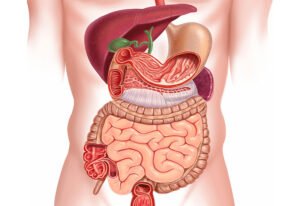- Home
- Treatment
- Our Doctors
- Our Hospitals
- Apollo Hospitals, Greams Road, Chennai
- Fortis Memorial Research Institute, Gurgaon
- Manipal Hospitals Dwarka, Delhi
- Max Super Speciality Hospital, New Delhi
- Sir Ganga Ram Hospital, New Delhi
- Fortis Escorts Hospital New Delhi
- BLK Super Specialty Hospital New Delhi
- Indraprastha Apollo Hospital New Delhi
- Medanta hospital gurgaon
- Sanar International Hospital
- Artemis hospital gurgaon
- CK Birla hospital gurgaon
- Services
- About us
- Review
- Contact us
GASTROENTEROLOGY

Gastroenterology is a medical specialty that focuses on the study, diagnosis, and treatment of disorders related to the digestive system, which includes the gastrointestinal (GI) tract. The GI tract comprises organs such as the esophagus, stomach, small intestine, large intestine (colon), liver, gallbladder, and pancreas. Gastroenterologists are physicians who specialize in this field and are trained to manage a wide range of digestive health issues.
Contact Us
Gastroenterology is the branch of medicine that focuses on the digestive system and its disorders. It encompasses the diagnosis and treatment of a wide range of conditions affecting the gastrointestinal (GI) tract, which includes the esophagus, stomach, small intestine, large intestine (colon), liver, gallbladder, and pancreas. This field is vital in maintaining the overall health and well-being of individuals, as the proper functioning of the digestive system is essential for digestion, absorption of nutrients, and elimination of waste.
Gastroenterologists are medical specialists who are trained to diagnose and manage various gastrointestinal diseases and conditions. They undergo extensive education and training, which typically includes medical school followed by residency in internal medicine and fellowship specifically in gastroenterology. During their training, they acquire expertise in performing diagnostic procedures such as endoscopy, colonoscopy, and imaging studies to evaluate the GI tract and identify abnormalities or diseases.
The scope of gastroenterology is broad, covering a wide array of conditions ranging from common digestive issues like acid reflux and irritable bowel syndrome (IBS) to more serious diseases such as inflammatory bowel disease (IBD), liver cirrhosis, and pancreatic cancer. Gastroenterologists play a crucial role in the early detection, management, and prevention of these conditions.
One of the key aspects of gastroenterology is the interdisciplinary approach it often requires. Gastrointestinal disorders can have complex underlying causes and may affect multiple organ systems. Therefore, gastroenterologists frequently collaborate with other specialists such as surgeons, oncologists, radiologists, nutritionists, and pathologists to provide comprehensive care to patients.
Advancements in technology and medical techniques have revolutionized the field of gastroenterology, enabling more accurate diagnosis and minimally invasive treatments. For example, endoscopic procedures such as endoscopic ultrasound (EUS) and endoscopic retrograde cholangiopancreatography (ERCP) allow gastroenterologists to visualize the inside of the GI tract, obtain tissue samples for biopsy, and even perform therapeutic interventions without the need for major surgery.
Preventive care is also an important aspect of gastroenterology. Gastroenterologists often advocate for regular screenings such as colonoscopies to detect colorectal cancer early when it’s most treatable. Additionally, they provide guidance on lifestyle modifications, diet, and medications to help prevent gastrointestinal diseases and promote overall digestive health.
In summary, gastroenterology is a vital medical specialty focused on the diagnosis, treatment, and prevention of disorders of the digestive system. Gastroenterologists play a crucial role in maintaining the health and well-being of individuals by providing comprehensive care for a wide range of gastrointestinal conditions, employing a combination of medical expertise, advanced technology, and interdisciplinary collaboration.
